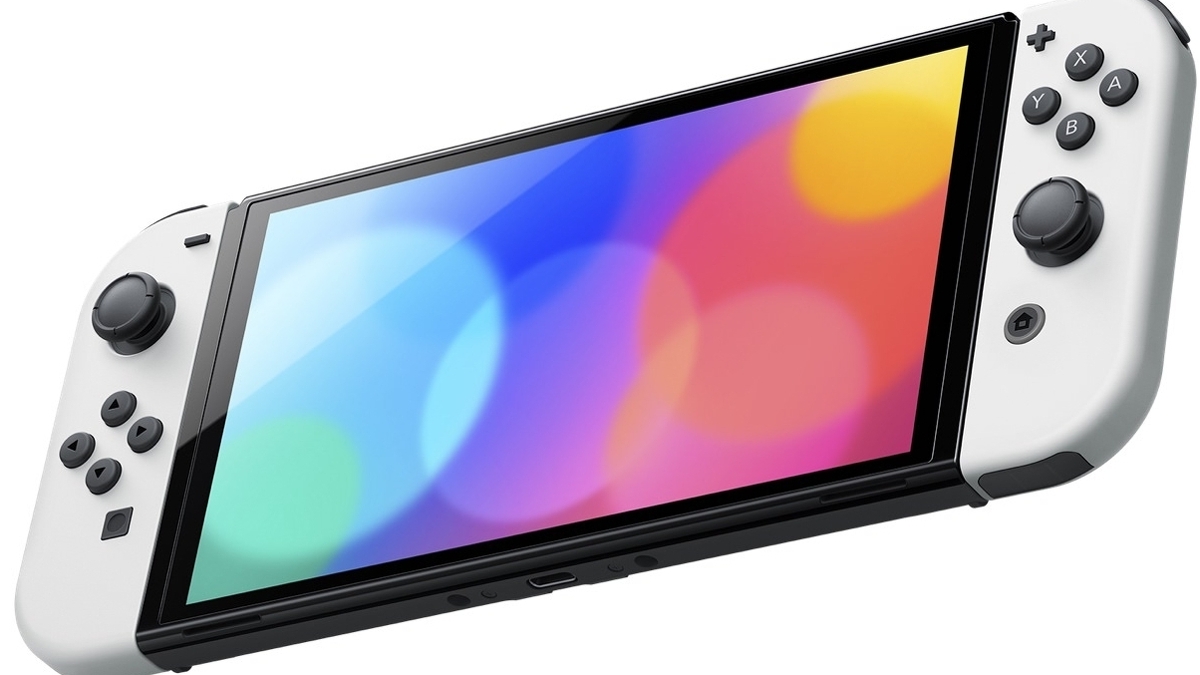
By this point, of course, we know full well what the Switch OLED isn't. There's nothing by way of extra grunt, nothing to cater for 4K monitors when playing docked and not much else feverishly associated with the idea of a Switch Pro. Instead, this is a mild hardware refresh, something along the lines of the 3DS XL yet perhaps milder still, with the form factor instantly familiar and only that bigger 7-inch screen with its slimmer bezel giving the game game away that this is a different model at all.
Still, that screen! I'm not going to get carried away by what, at this point, is far from cutting edge technology, but it is at least a noticeable step up from the existing model. 7-inches is better than the current Switch's 6.2, and that slimmer bezel feels like a bigger improvement still. When it's in your hands, that screen is pretty much all you can see, which of course does wonders for immersion (the light sensor that creates a slight intrusion on the original Switch has been well hidden in the OLED model too – I poked around but couldn't find where it's been secreted in my short time with the new system).
Then of course there are the other benefits of the OLED screen. Perhaps sending along the colour blind member of the team wasn't the best approach, but Nintendo is being selective with who's able to access the machine and remains reluctant to put it in front of the likes of Digital Foundry who might be able to go a little more in-depth, and weeks after it was first shown off Stateside, photography of the Switch OLED remains prohibited. Still, even with my limited vision I could spot the lysergic pop of Hyrule's greens in Breath of the Wild, the deeper blacks in Mario Kart 8 and the enhanced intensity of Super Mario Odyssey's palette.